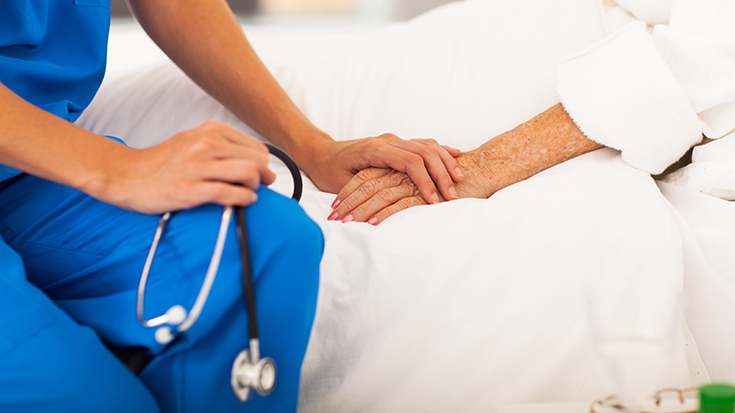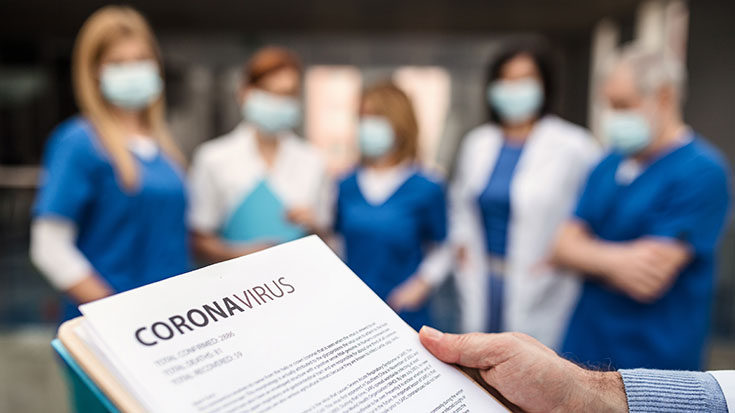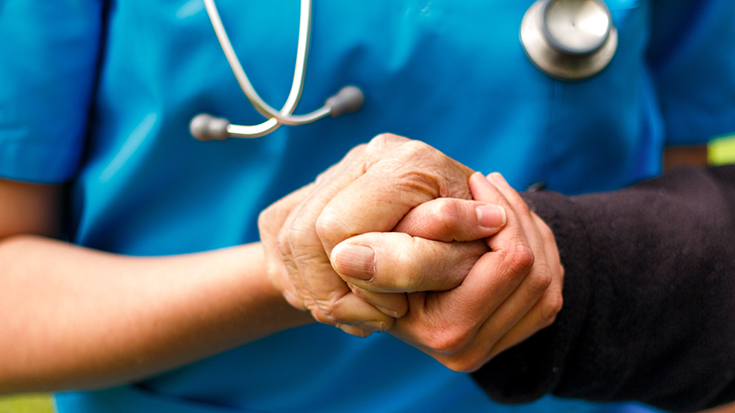
According to a recent study that analyzed data on 1407 COVID-19 patients in a University of California COVID research dataset, 27% reported persistent symptoms 60 days after the acute phase of the disease had resolved. In addition, older people were more affected than younger people, and women were more affected than men.
Known informally as “long-haulers,” these patients complain of a range of symptoms. Many of these symptoms relate to the lungs, which means respiratory therapists are likely to play a role in the recovery effort that will have to be mounted to help them regain their quality of life.
What will that role consist of? We asked Michael Hess, MPH, RRT, RPFT, formerly a chronic lung disease coordinator at Western Michigan University in Kalamazoo, and now senior director of public outreach and education at the COPD Foundation, to share his take on the topic.
It seems clear at this point that a significant number of COVID-19 patients will still be having troublesome symptoms weeks or months after their bout with the disease. So what kind of respiratory issues are they having?
It seems the long-haul symptoms can be as varied as the acute-phase ones. I’ve seen descriptions ranging from ongoing loss of smell and taste to migraines to long-term decreases in activity tolerances. A lot of these folks seem to have issues with lower DLCO measurements, which is likely contributing to their exercise dyspnea, but it’s not entirely clear yet.
How do you believe respiratory therapists will be involved in caring for these patients?
I think there will be two main areas. First, diagnostics. As mentioned, there have been a few studies that show an association between symptom burden and low DLCO, which logically follows.
Unfortunately, we know that a lot of folks don’t have access to good pulmonary diagnostics for a variety of reasons. However, there are new solutions available to bring pulmonary function testing to more venues like clinics, primary care practices, even the bedside. It will be important for diagnostic RTs to be aggressive advocates so we can get high-quality testing data to develop effective plans of care.
The other area is post-acute care. We’re already seeing much more attention focused on things like the oxygen infrastructure, with higher-profile names finally starting to realize just how important the molecule is. No less a figure than Dr. Anthony Fauci himself said that he had never previously contemplated that an “oxygen shortage” could even happen until he started seeing it happen across the country.
Similarly, specialized COVID rehabilitation programs have been sprouting up across the country, providing an opportunity for our skilled pulmonary rehab RTs to bring their expertise to bear on this burgeoning problem.
What settings do you believe will end up offering care for these patients, and why?
That’s an interesting question, and one that I’m not sure really has a definitive answer yet. It’s still pretty early days when considering how best to treat this thing. My supposition is that most of these folks are going to try to be handled by pulmonologists and cardiologists because that’s what we do with cardiovascular disease, right?
But, much like our other chronic stuff, I would argue that primary care can actually be more effective here. PCPs are the ones who are going to find most of these folks because a significant percentage of long COVID comes from relatively mild cases that don’t demand hospitalization. PCPs are the ones who are going to have to sort this out from asthma, COPD, heart disease, etc.
Ironically, PCPs are also the ones who arguably need the most help to do that. Again, this is a fantastic opportunity for RTs to come in and add diagnostic, care coordination, and education services at the point of primary care, providing an added value — and potentially additional revenue. It’s also a place where tele-respiratory services can shine, with remote monitoring, remote rehabilitation services, and simple check-ins that can facilitate efficient, effective care.
How will RTs be able to leverage their knowledge of chronic respiratory patients, in general, to care for patients with long-haul COVID-19, and how will they have to adapt to deal with this new condition?
Probably one of the biggest things is that we know what to do with a lot of the other folks. For example, in COPD, we have a decent enough evidence base to know what exercises generally work, what to teach, etc. That’s not to say we always do it, but we have a pretty solid idea of what we should do.
Because COVID-19 is still new, we don’t know what all the effects are. We don’t know what’s going to be most effective. We don’t know what the outcomes will be because we don’t really have much to draw on, other than original-recipe SARS, and that clearly wasn’t as big. So there are still a lot of unknowns.
The most effective treatment is always the one that the patient will do and sees benefit from, but considering the heterogeneity of symptoms in this population, there’s unlikely to be a one-size-fits-all solution. It’s going to be about personalized medicine.
How do you think our involvement in long-haul COVID-19 will figure into our efforts to elevate the profession in the grand scheme of things?
We’ve known for a long time that RTs are wildly undervalued and under-utilized in the health care system. However, I believe that when the stories of the pandemic are written, RTs will finally get that recognition. We’re potentially entering a golden age for our profession if we continue to position ourselves to be ready for it.
For more on long-haul COVID-19, read Mike’s recent blog on the COPD Foundation website.
Email newsroom@aarc.org with questions or comments, we’d love to hear from you.














